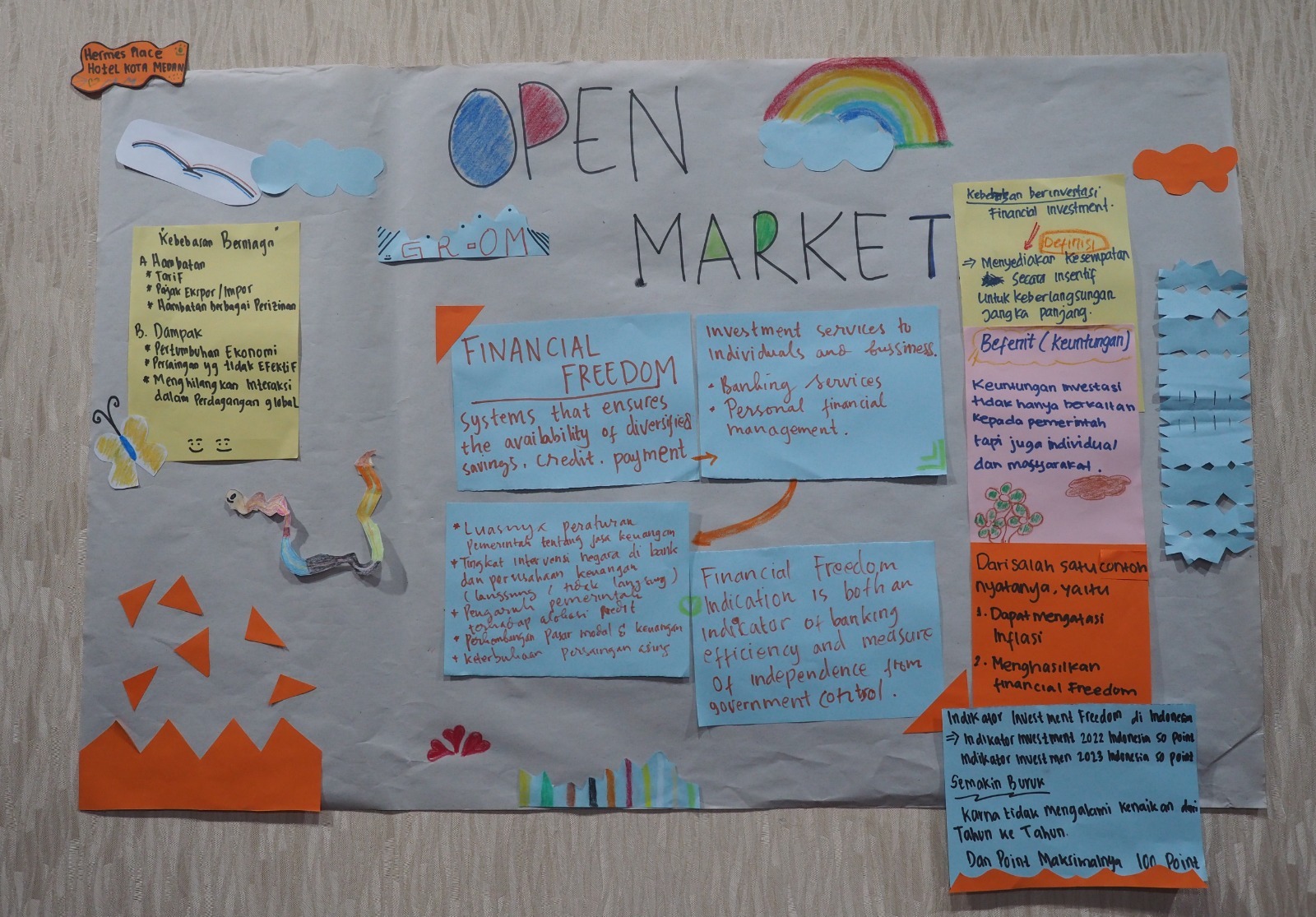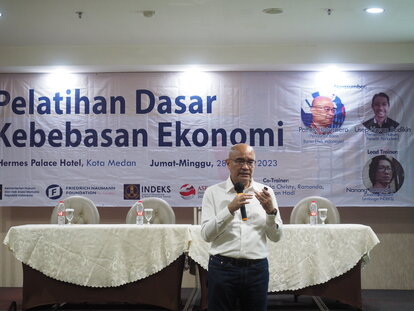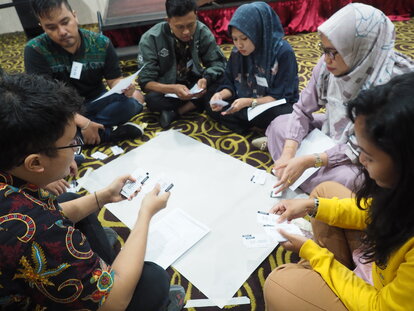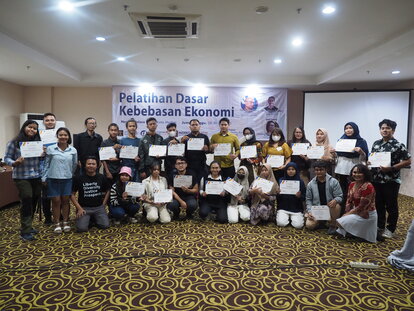Economic Freedom
Economic Freedom and Prosperity in Indonesia

FNF Indonesia and the Institute of Democracy and Prosperity (INDEKS) held a Training on Basic Economic Freedom in Medan, North Sumatra from 28th to 30th July 2023. Twenty-four participants took part in this training, mostly consisting of students from universities in Medan. The purpose of this training was to introduce the concept of economic freedom to the young people in Medan, one of the largest business cities in Indonesia.
Economic freedom is as important as civil liberties, stated Nanang Sunandar, the Director of the Institute of Democracy and Prosperity (INDEKS). Both are essential aspects in fulfilling human rights. FNF and INDEKS have been cooperating since 2018, currently focusing their efforts on the topics of civil liberty, economic freedom, and diversity. Nanang believes that the concept of economic freedom will be beneficial for every individual and society in achieving prosperity. According to the Index of Economic Freedom reported by the Heritage Foundation, Indonesia scored 63.5, which is 0.9 points lower than the previous year. This score ranks Indonesia's economy as the 60th freest in the 2023 Index. Nanang Sunandar emphasized property rights as one of the most important elements among the indicators of economic freedom, with the lowest score, even below the world average. He explained that this is due to weak law enforcement of property rights, leading to property rights violations in some areas of Indonesia.
A similar viewpoint was conveyed by Ganes Woro Retnani, Program Officer at FNF, who believed that the concept of economic freedom will create a prosperous society. "Economic freedom promotes individual freedom," said Ganes. It allows individuals the freedom to maximize their competence and creativity so that they can achieve prosperity. Ganes explained the principle of the "invisible hand," introduced by the Scottish Philosopher and the father of Modern Economics, Adam Smith. The invisible hand addresses the idea that the production of goods and services in a market-driven economy is primarily motivated by individuals' or businesses' self-interest rather than benevolence or altruism. Ganes further emphasized that when individuals and businesses pursue their self-interest in a competitive market, it inadvertently benefits society as a whole.

Poltak Hotradero, a business analyst at the Indonesia Stock Exchange, highlighted the role of economic freedom in the development of economies around the world. He pointed out that countries with a high level of economic freedom are more prosperous than countries with a low level of economic freedom. "People in economically free countries are more prosperous in terms of education, health, and life expectancy," said Poltak. He compared countries that implement economic freedom, such as South Korea and West Germany, with those that do not, like North Korea and East Germany, to illustrate the difference. Poltak also explained the four cornerstones of economic freedom: (1) personal choice, (2) voluntary exchange coordinated by markets, (3) freedom to enter and compete in markets, and (4) protection of persons and their property from aggression by others.

An interesting question arose from one of the participants: whether economic freedom is more important than political freedom, or vice versa. "Which one comes first?" she asked. Poltak explained that both are very important for a prosperous society, but economic freedom must come first. He elaborated that when individuals and businesses have the freedom to make their own economic decisions, allocate resources efficiently, and engage in entrepreneurial activities, it can lead to higher levels of wealth creation and improved living standards for a larger portion of the population. When individuals and society are economically self-sufficient, they are better positioned to engage in political activities that promote political freedom.
The key takeaway from this training is that economic freedom can significantly contribute to a nation's economic growth and enhance its overall prosperity. Unfortunately, in Indonesia, the concept of economic freedom is still not widely understood by society. FNF and INDEKS hoped this training can bring positive impacts to the development of economic freedom in Indonesia.

